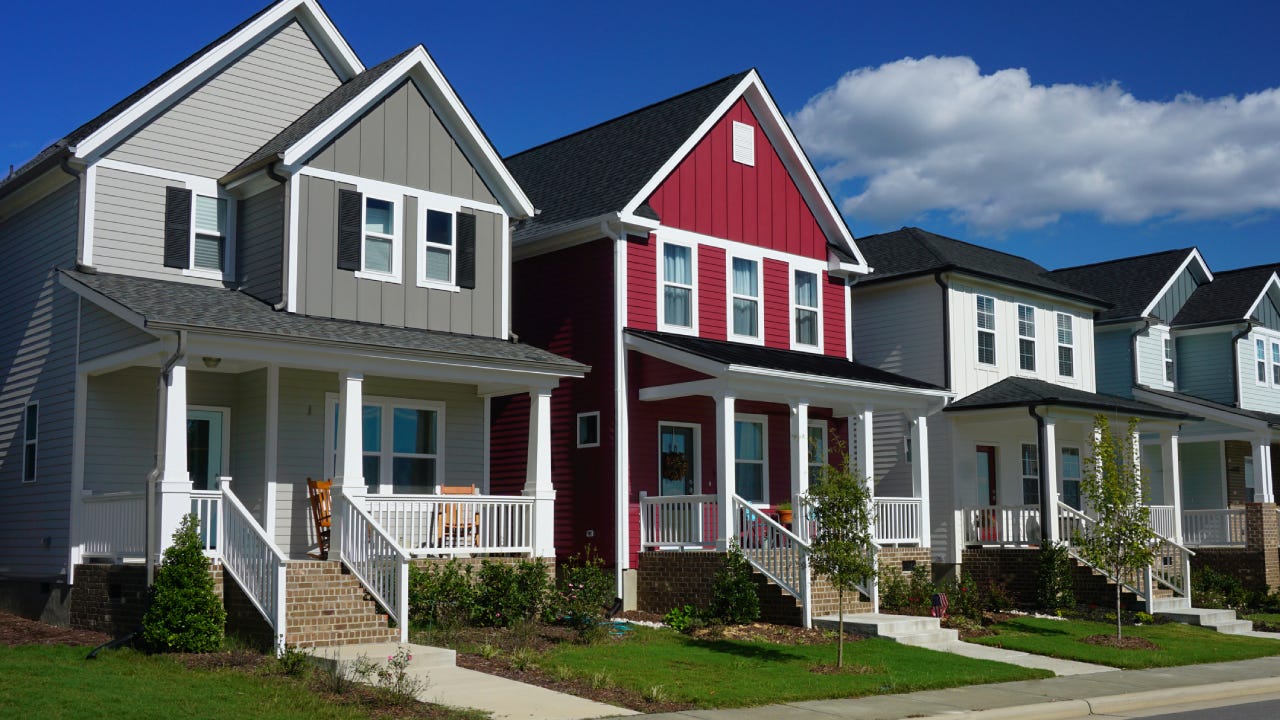The Future of Realty: Patterns and Opportunities to See
As the realty landscape evolves, it ends up being increasingly necessary to recognize the arising trends and opportunities that will specify the sector in the coming years. Technical innovations are reshaping transactional processes, while an expanding concentrate on sustainability mirrors changing customer top priorities. In addition, market shifts and the increase of remote job are affecting real estate preferences, particularly in rural areas. With these characteristics at play, a more detailed exam of the adjustments and strategies essential for success exposes interesting possibilities that could improve investment strategies and market behaviors.
Technological Technologies in Realty
In recent years, the genuine estate sector has welcomed a wave of technological advancements that are transforming traditional methods. One of the most significant technologies is the rise of huge information analytics, which permits real estate experts to examine market fads, predict building worths, and identify investment chances with unprecedented precision.
Additionally, virtual fact (VIRTUAL REALITY) and augmented fact (AR) innovations are changing property marketing by offering immersive experiences for possible purchasers and occupants. These devices enable customers to carry out online excursions of residential or commercial properties, thus improving the search process and enhancing customer engagement. Blockchain innovation is getting traction as a method to protect deals and preserve transparent documents, therefore reducing scams and accelerating the closing process.
Smart home technologies are additionally ending up being progressively widespread, making it possible for house owners to keep track of and control their homes remotely (Real Estate Lockhart). Jointly, these technical developments are reshaping the landscape of real estate, fostering an extra effective, transparent, and customer-centric market
Need for Lasting Features
As consumers significantly prioritize ecological obligation, the need for sustainable homes has actually surged in the actual estate market. This change reflects a wider social fad towards sustainability, with property buyers and investors looking for homes that lessen ecological impact while maximizing power efficiency. Functions such as photovoltaic panels, energy-efficient appliances, and sustainable structure materials are now deemed vital instead of optional.

Additionally, the surge of eco-friendly areas, which focus on walkability and accessibility to public transport, additionally emphasizes this fad. These growths interest ecologically mindful buyers and advertise a healthier lifestyle.
As the demand for lasting homes continues to climb, industry stakeholders have to adapt to these expectations. By focusing on and embracing cutting-edge practices sustainability, the property field can not just meet customer demand yet also add to a much more lasting future.
Altering Customer Demographics

Furthermore, the aging populace is improving need for housing. Baby boomers are looking for scaled down residences that offer access and low maintenance, typically favoring urban setups with nearby facilities. This shift demands an emphasis on multi-generational housing services that accommodate differing needs.
Moreover, cultural diversity is playing a crucial role in genuine estate fads. As these market changes proceed to develop, genuine estate experts have to adjust their methods to deal with the needs of these varied purchasers (Real Estate Lockhart).
Rise of Remote Job Influence
Progressively, the rise click this link of remote work is transforming the realty landscape, prompting considerable changes in customer choices and location options. As employees delight in the versatility of functioning from home, several are reevaluating their domestic demands, leading to a surge popular for residential or commercial properties in rural and country areas. This trend is mainly driven by the wish for even more spacious living settings that can accommodate home offices and a much better top quality of life.
Moreover, urban facilities, as soon as the prime focus for buyers, are seeing a progressive decline popular as individuals prioritize affordability and access to nature. Actual estate designers and capitalists are changing their emphasis toward residential properties that offer home workplace spaces, exterior features, and closeness to crucial services.
This evolving landscape necessitates a reevaluation of traditional market approaches. Genuine estate experts must adjust to the changing choices of purchasers, highlighting the value of way of living consider their marketing strategies. On top of that, contractors are progressively prioritizing adaptable floor strategies that satisfy the twin requirements of living and working, guaranteeing that they continue to be competitive in a swiftly altering market. The effects of remote work with realty are extensive, shaping future patterns and possibilities.
Investment Opportunities in Emerging Markets
Financial investment opportunities in arising markets are regularly standing out from actual estate investors looking for diversity and development possibility. These markets, characterized by fast financial growth, increasing urbanization, and a growing center class, present unique potential customers for smart capitalists. Nations in Southeast Asia, informative post Africa, and Latin America are experiencing substantial infrastructure improvements and positive federal government plans, which even more boost their allure.
Property sectors such as domestic, industrial, and logistics are experiencing increased need as a result of city movement and evolving consumer preferences. Notably, cities like Ho Chi Minh City, Nairobi, and Medellín are ending up being hotspots for financial investment as a result of their increasing economies and youthful demographics.
Investors should perform comprehensive market analyses to identify key trends, such as shifts in population dynamics and economic stability, which can affect residential property worths. Furthermore, collaborations with local realty companies can help with effective access and navigation in these markets.
Nonetheless, it's crucial to be conscious of possible risks, consisting of political instability and governing difficulties. By evaluating these factors and taking on a lasting perspective, investors can effectively take advantage of the lucrative possibilities emerging in these developing areas.

Final Thought
To conclude, the future of property will certainly be substantially influenced by technological advancements, an expanding emphasis on sustainability, and evolving purchaser demographics. The rise of remote job is improving real estate choices, specifically in country areas. Emerging markets existing considerable investment chances for stakeholders willing to adapt to these adjustments. Navigating this changing landscape will call for strategic collaborations and a keen understanding of market characteristics to profit from the patterns forming the industry.
As the genuine estate landscape advances, it becomes progressively crucial to understand the emerging trends and chances that will certainly define the market in the coming years. One of the most significant technologies is the rise of big information analytics, which permits real estate specialists to analyze market fads, forecast building worths, and recognize investment chances with unmatched accuracy.As consumers increasingly prioritize environmental responsibility, the demand for lasting residential properties has actually risen in the real estate market. The implications of remote job on genuine estate additional hints are extensive, shaping future patterns and opportunities.
Investment opportunities in emerging markets are consistently attracting attention from actual estate financiers seeking diversification and growth possibility.